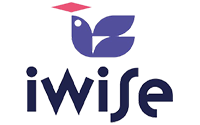The iWISE Olympiad would like to give young scientists an opportunity to engage with scientists and researchers from a variety of physical science backgrounds to pursue their passion for finding a solution to problems we face in our daily lives. In this category we want students to focus their research on Energy, Astronomy and Space Sciences, Matter and Material Sciences, Mechanics, Optics, Theoretical Physics etc.
Based on the iWISE Olympiad’s aim for the Physical Science category, here are the specific objectives and evaluation criteria, aligning with its focus on Energy, Astronomy, Material Science, Mechanics, Optics, and Theoretical Physics.
Objectives for the Physical Science Category
– Stimulate curiosity and research: Motivate students to pursue in-depth research on specific problems within the physical sciences.
– Apply knowledge creatively: Challenge students to move beyond rote knowledge by applying theoretical principles creatively to devise novel solutions for everyday problems.
– Address real-world challenges: Guide students to focus their research on physical science challenges that have a tangible impact on daily life.
– Master the scientific process: Equip students with the ability to formulate a clear problem statement, design experiments, collect and analyze data, and draw evidence-based conclusions.
– Cultivate practical skills: Foster hands-on skills in experimental design, observation, and analysis through a project-based approach.
– Enhance critical thinking: Strengthen students’ capacity for critical thinking by requiring them to analyze existing knowledge, evaluate data, and identify potential flaws or limitations in their own work.
– Provide a platform for interaction: Create opportunities for students to engage with researchers and scientists, receiving valuable feedback and mentorship.
– Refine communication skills: Encourage students to articulate complex physical science concepts clearly and effectively, both orally and in writing.
– Inspire career paths: Motivate young scientists to consider careers in physical science and related fields by showcasing the real-world applications of their research.
Aspiring physicists can explore the Physics Category through various subcategories:
Energy Productivity
Non-Renewable Energy
Renewable Energy
Astronomy & Space Sciences
Matter & Material Science
Mechanics
Mechatronics & Basic Robotic
Optics
Theoretical Physics
- Click on the Registration Tab
- Select one of the Virtual Finals
- Fill in your details.
- Fill in your selected category details on the corresponding form.
- Select your available time for the Judging process.
- Submit your zoom judging session.
- Proceed to payment.
- Complete your submission.
Judges will evaluate projects based on the student’s demonstration of scientific understanding, the project’s innovation, and the effectiveness of their communication.
Scientific research
– Problem statement: Is the research problem clearly and concisely defined?
– Methodology and thoroughness: Was the scientific method properly applied? Was the research plan robust, and were sufficient data points collected to support the conclusions?
– Knowledge gained: Does the student demonstrate that they have acquired new scientific knowledge or skills during the project?
– Results and conclusion: Do the conclusions logically follow from the data collected, and do they directly address the original problem?
– Error analysis: Does the student recognize and discuss potential sources of error or limitations in their experimental design?
Creativity and innovation
– Originality of approach: Is the project’s concept or approach to a problem original and not simply a replication of existing work?
– Ingenuity: Does the student demonstrate creative and inventive thinking in their design or experimental setup?
– Practical application: Does the project show a unique and practical way of applying physical science principles to solve a real-world problem?
Communication and presentation
– Clarity of visual display: Is the project’s visual display effective and easy to understand, with data presented clearly through charts, diagrams, or other visuals?
– Written materials: Is the project report well-written, organized, and scientifically sound?
– Oral presentation: Can the student clearly and confidently explain their project’s purpose, methodology, and results during an interview?
– Engagement: Do the students demonstrate a strong command of their topic and engage thoughtfully with questions from the judges?
Collaboration and independence
– Collaborative evidence: For group projects, is there evidence of effective collaboration and shared contribution?
– Student ownership: Is the project primarily the student’s own work, with assistance from others properly acknowledged?
Requirements for Virtual Finals:
Participants must out together the following documents for their STEM Projects:
Project Abstract
Project Portfolio
PowerPoint Presentation
No theme for this category.
Group submission is up to 3 participants
Requirements for Global Finals:
Participants must put together the following documents for their STEM Projects:
Project Abstract
Project Research Plan
Project Portfolio
Poster
Prototype (If Applicable)
PowerPoint Presentation (Optional)
No theme for this category
Group submission is up to 3 participants.
